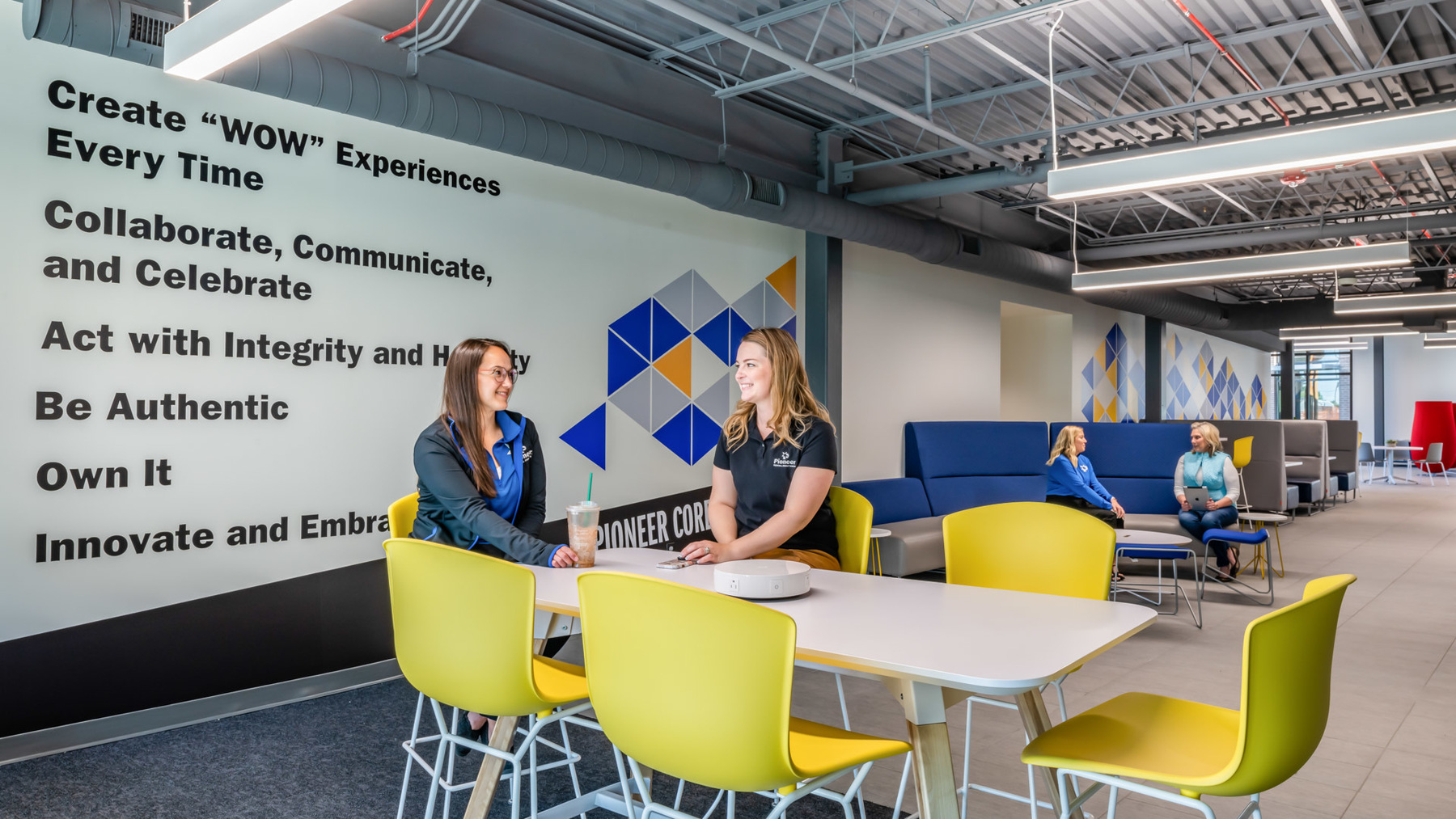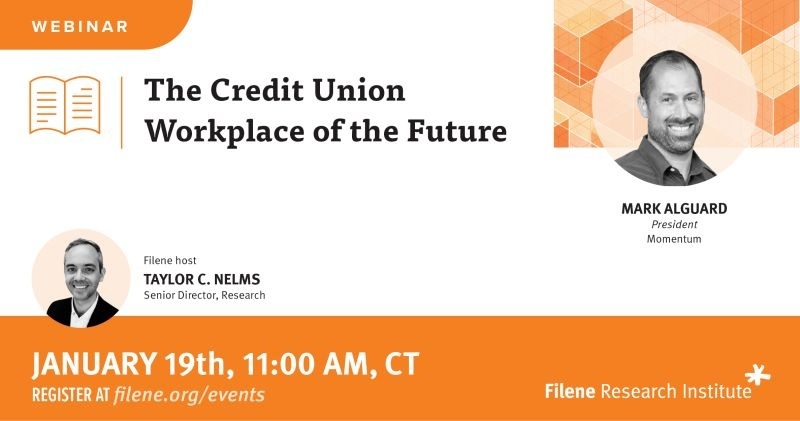Credit unions and community banks find themselves competing in an escalating war for talent as labor shortages intensify. Faced with unprecedented career opportunities, workers are putting serious thought into what they expect out of the working experience.
Employees are looking for opportunities that transcend “just a job” and instead offer purpose, responsibility, career growth, and, most importantly today, autonomy over where and how they work. They want workplaces that break out of rigid corporate molds and instead are more suited to their own workflows and personal preferences, and they want the freedom and flexibility provided by hybrid workplace strategies.
We find ourselves in a period of rapid change that will stand out in history as a major transformation in our working culture. The pace of these changes can feel overwhelming, and leaders are faced with new and unique questions that don’t have clear answers. But we’re making an effort demystify these trends, to understand what we know and don’t know, to find the questions that need to be asked, and to look for answers.
At the height of the pandemic, we published our whitepaper A Study of Credit Union Workplaces and the Future of Work. We dug into data from over 1,200 credit union employees to explore how they are supported by their workplaces and how they can best be supported going forward.
Expanding on this research, we’ve been working with The Filene Research Institute for a few years to explore the future of credit union workplaces and have sponsored new original research into the impact that physical workplaces have on employees as well as how physical spaces impact diversity, equity, and inclusion efforts.
Hybrid Workplace Strategy
We believe that hybrid workplace strategies will become the dominant model. Remote working is the most requested perks today and something that employees have come to expect during the pandemic, and they've demonstrated that the trust given to them was not misplaced. Yet at the same time, many credit union roles require at least some in-person collaboration. Physical offices are also needed to build a sense of culture and engagement, and to create an environment where new credit union employees develop into the experts and leaders of tomorrow.
This is a complex issue and one where credit union leaders are struggling to find the answers and data they need to make long-term strategic decisions.
In mid-Aprile, Filene is publishing a whitepaper in partnership with Momentum and authored by Mark Alguard titled “The New (Hybrid) Credit Union Workplace.” In advance of that whitepaper we joined their Sr. Director of Research Dr. Taylor Nelms for a webinar on the topic.
You can watch a recording of this webinar, “The Credit Union Workplace of the Future,” on Filene’s website here or click the image below.
Diversity, Equity, and Inclusion
The impact of physical working environments on diversity, equity, and inclusion is often overlooked. We want to change this. We're sponsoring an original Filene research project, "Bridging the Spatial Divide," which will be published on February 24. This paper, authored by Bukky Akinsanmi Oyedeji, PhD of the University of Texas' McComb's School of Business, explores this impact and makes a series of recommendations on how credit unions can deliver more inclusive working experiences.
Fill out the form below and we'll send you a download link when the paper is released!


